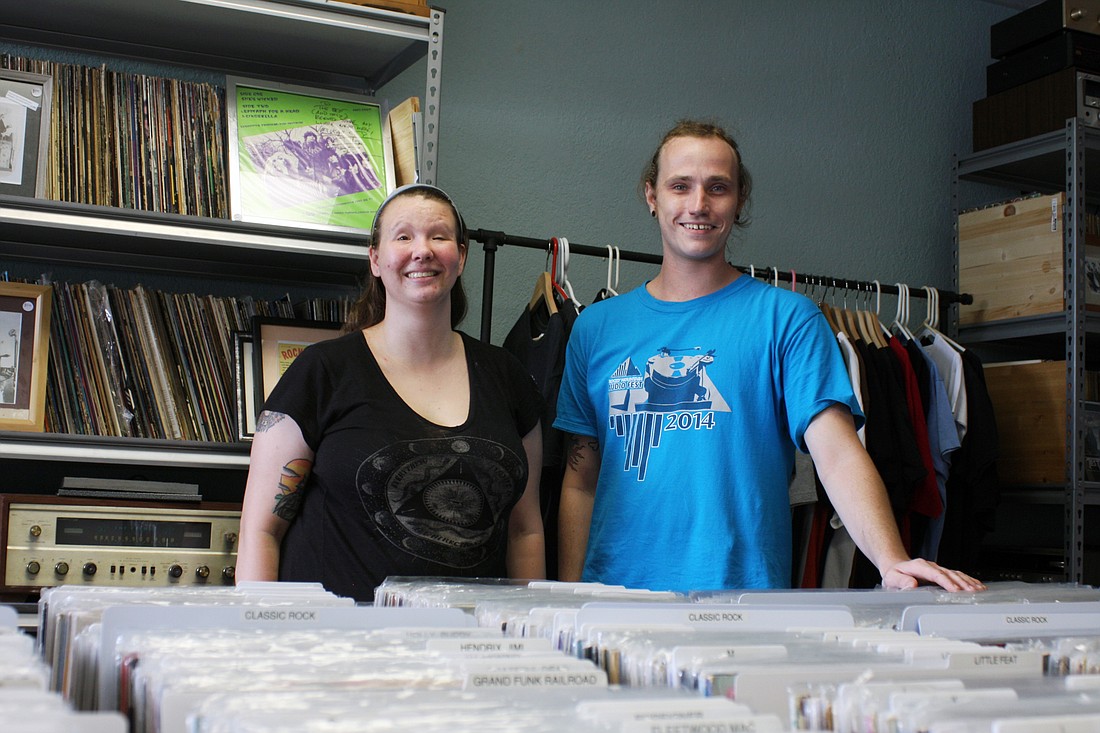- November 24, 2024
-
-
Loading

Loading

Ah, the vinyl record — and the classic record shop — as seen in Stephen Frears’ adaptation of Nick Hornby’s “High Fidelity.”
Behind the counter, a walking, talking human music encyclopedia. Out on the floor, in-your-face music posters and racks of LPs, helpfully categorized (rock, folk, jazz, etc.) and arranged in alphabetical order. But CDs drove a stake through the heart of the vinyl record format — and MP3s set what was left of the corpse on fire. It’s enough to bring a tear to a baby boomer’s eye. But don’t cry just yet.
The death of the vinyl record has been greatly exaggerated. Here’s a rough anecdotal history of the comeback of the format that never went away.
Back in the distant ‘80s, many aging hippies figured this CD business was a fad and held onto their records and record players. Simultaneously, punk and alternative bands stubbornly kept recording on the format. Vinyl LPs became a part of the music festival circuit swag. By the start of the 2010s, hip millennials were buying turntables and vinyl like never before. The facts were in. Old-school records weren’t a thing of the past. They were a certifiable niche.
That’s not to say all the old-school record shops survived. Amazon and eBay have taken their toll. Many major chains folded. But a few independents hung in there. In greater Sarasota, there’s Vatican City Record Store, Daddy O’s Record Rack and The Pirate’s Exchange, to name a few. In the Tampa Bay area, Bananas Music and Daddy Kool Records dominate the scene.
So, what does a brick-and-mortar record shop give you that online ordering can’t? First of all, human beings. Like, say Christian Downing and Katelyn Booth — the proud co-owners of Vatican City. While they do have an actual baby, (Katelyn Alexandria Booth), the shop is their metaphorical offspring.
“Music is our life,” Downing says. “This isn’t just our business — it’s our passion. We can answer your questions and track down that rare LP you’re looking for.”
In other words, instant gratification. A customer can say, “I’m looking for this album. You know, the one with the two robots on the escalators.” Downing or Booth will instantly tell you, “That’s Black Sabbath’s ‘Technical Ecstacy,’”—and then they’ll track it down for you. Amazon and eBay can’t do that.
The second big thing?
“Serendipity,” Downing says. “It’s one thing to know what you want. It’s another thing to find something great that you didn’t know you wanted. That kind of discovery happens in a record store. A great album cover or a word from a fan of some band or genre will send you off in a totally new direction. The online companies just assume what you bought in the past is what you’ll buy in the future. The random connection takes you surprising places.”
Emanuel Matalon (aka “Manny Kool”), the manager of Daddy Kool records, puts it another way. “It’s the difference between playing a basketball video game and going to the court and shooting hoops,” he says. Yeah, the concept is the same, but the real thing feels much better. In a mom and pop store you can look at album covers, thumb through the crates, and find inspiration from people who know and love music.”
So why the resurgence in vinyl?
Our sources are unanimous on that score.
It’s the sound.
That’s what we heard from the ultimate audiophiles — the bands themselves. Many contemporary music makers are seriously committed to vinyl.
“Vinyl is the way to go,” says Lucy Tight, of Hymn for Her. “The warm sounds and cool art add up to an aural/visual experience. Listening to one side, taking it in; chilling for a bit and thinking about what you just heard. Then maybe you play the other side right away, or later. It demands more attention than a crappy MP3!”
“Digital recording got crazy in the 1990s,” says Chris Flannagan, of Hail Dale. “Everything got so processed and manipulated and artificial. With analog recording, if it’s done right, the sound waves chiseled into the record are the actual sound that the band produced. It’s the closest thing you can possibly get to the real thing.”
According to Downing, if you’re serious about sound — there’s simply no substitute.
“The universality of digital recording is an unhappy accident,” he says. “It throws a lot of information away and flattens everything out in the compression process. They say you can’t hear the difference, but you can.”